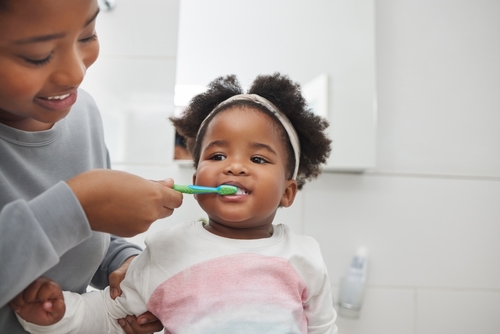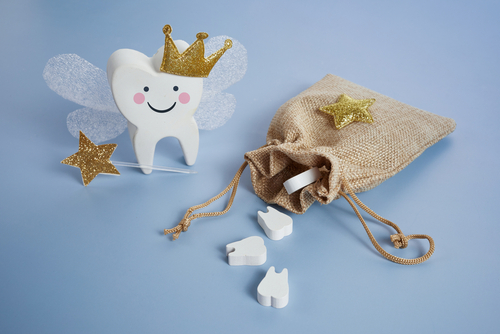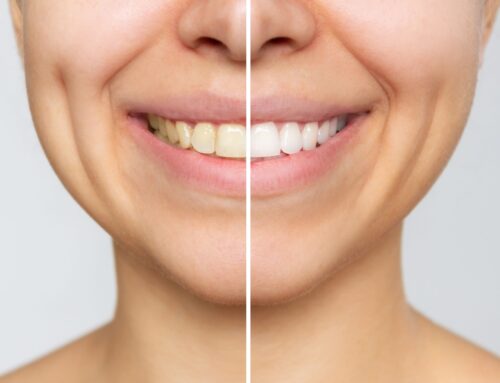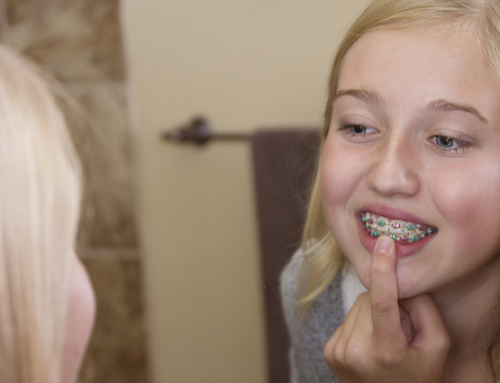Bye, Bye Baby Teeth | Hello Tooth Fairy
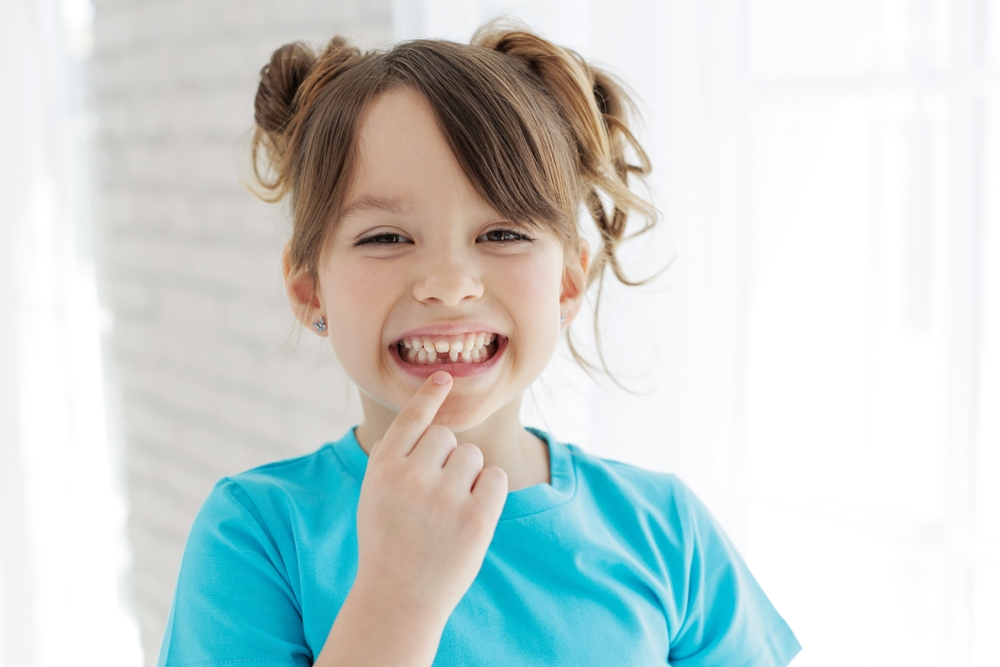
There is a lot to learn when you are a parent to a young child. As a parent, you won’t always have the answer to every question, but it’s important to know that this is perfectly okay. You’ll have plenty of resources to help you out along the way. Always feel free to reach out to your dentist with any questions you may have.
Furthermore, you can also check out some online resources, such as our blogs. Here’s one that you might be interested in:
Even though we shed them away, keeping baby teeth healthy is important!
When it comes to losing baby teeth, there’s a lot more to the conversation than just when they may be falling out. When should permanent teeth show up? What if baby teeth don’t fall out? Keep reading to learn more about all of these topics.
Baby Teeth
Most people get two sets of teeth in their lifetime — primary (baby), and permanent (adult) teeth. Primary teeth are meant to fall out after a few years, making room for adult teeth.
Even though they eventually fall out though, baby teeth still have a very vital role to play. Not only do they help children chew and eat, but they also save space for adult teeth to come in.
As your child’s baby teeth start coming in, you might face some normal challenges. For example, teething can be very daunting to deal with for a lot of new parents. Don’t worry, though, we’ve got a lot of great tips for new parents! Keep reading to learn more.
Find even more helpful tips on what to expect in our Tooth Talk blog.
- 5 Step Survival Guide to Baby Teething
- 5 Tips to Make Your Child’s First Dental Visit a Success!
- A Pediatric Dentistry Guide | For Parents Who Aren’t Dentists
When Do Babies Get Teeth?
Your baby teeth are the first to come in and typically start poking through at 6 – 12 months of age. Between the ages of about 6 and 7 years, these primary teeth fall out, and adult teeth start growing in.
Tooth Tip:
Did you know that teeth follow the FOFI rule? First out, first in! Baby teeth usually fall out in the same pattern that adult teeth come in (excluding teeth lost due to trauma).
When Do Baby Teeth Fall Out
Though you can’t predict when your child will actually lose that first baby tooth, around the age of six is a common time when the first baby tooth jumps ship.
A loose tooth can take anywhere from a few weeks to several months to fall out. Pediatric dentists never recommend prematurely pulling a tooth out, so do not let your brave kiddo tie a string to the loose tooth and a doorknob in hopes of getting an early visit from the tooth fairy.
When should you start worrying? If your child begins losing those baby teeth prior to the age of four, call the dentist. The same goes for children who do not lose any of those baby teeth by age eight – call the dentist. But, don’t forget that it can take a while for all of those teeth to fall out and for others to grow in. In the meantime, poor hygiene can lead to tooth decay or gum disease in baby teeth, so be sure to teach your kids a good oral health routine early on.
How Many Baby Teeth Do You Lose?
Most people lose all 20 of their baby teeth. Don’t worry, however, these teeth are replaced by bigger and stronger adult teeth.
Caring For Baby Teeth
Yes, baby teeth do eventually fall out and get replaced. Having said that, it is still very important to keep those tiny teeth as healthy as possible while they’re growing in your child’s mouth.
Keep in mind that baby teeth are just as prone to cavities as adult teeth and can develop dental decay in no time if left uncared for. If your baby develops a cavity, it will not only cause discomfort but can lead to more serious dental problems.
Brushing Baby Teeth
Even before your baby’s first primary tooth comes in, you may want to start wiping their gums with a clean, wet gauze. Once the first tooth comes in, you can begin shopping for a baby toothbrush and toothpaste. Always ask your pediatric dentist for a recommendation. They will most likely recommend a small soft-bristle baby toothbrush and a child-safe fluoride toothpaste.
Remember to go easy on the toothpaste; you only need a little bit, and brush twice a day. Try to take your baby’s dental health as seriously as you do your own. Remember that it’s hard for them to communicate when something is wrong, so you should always be proactive regarding their dental health.
Baby Teething
As your baby’s first teeth start coming in, you may notice that they cry and show signs of slight discomfort. This is a very common thing for babies and parents to experience.
Baby Teething Symptoms
Although some baby teeth erupt with little to no discomfort, many babies do experience some achiness. Here are a few of the most common symptoms of teething:
- Swollen, tender gums.
- Fussiness or frequent crying.
- Drooling (more than normal).
- Frequent chewing or gnawing.
And more…
Do keep in mind, however, that not all oral pain is normal; always consult with your pediatrician if you have concerns.
Baby Teething Remedies
The first step if you have any health concerns regarding your baby is to see your family doctor or pediatrician. They’ll have a better idea of whether or not your baby’s discomfort is due to teething or an unrelated health issue.
If your baby is going through teething, however, here are a few things that might help:
- Try a teething ring. Make sure that any toys or objects you give to your child pose no choking hazard. Keep in mind that even products marketed for “teething” such as teething necklaces, bracelets, and anklets, can have beads that may pose a choking hazard.
- Gently massage your baby’s gums. Remember to thoroughly wash your hands with soap and water before touching your baby’s mouth.
- Give them something cold. Try giving your child a sippy cup filled with cold water or a refrigerated teething toy. Don’t give your child anything frozen, though, since the temperature may be too cold for their mouth.
Adult Teeth
As your child’s primary teeth fall out, you’ll start to see their adult teeth come in. These are the permanent teeth that your child will have for the rest of their lives. You might also notice that your child’s wisdom teeth take much longer to come in, and for some, they never fully erupt at all. Make sure to continue bringing your child to the dentist during this time. Your dentist will be able to monitor the growth of the primary teeth and make sure everything looks on track.
As always, keep up your child’s dental care routine. Good oral care is vital for healthy teeth and gums.
Making Dental Care Fun For Kids
One of the biggest challenges for parents is explaining all these dental changes to small children. If your child has just lost their very first tooth, don’t panic. We’re here for you! Check out these tips for making dental care fun for kids:
Tooth Fairy
To many kids, losing that very first tooth can be quite confusing. So the best thing to do is talk to them about it ahead of time. Another fun thing you can do is introduce them to the idea of a “tooth fairy”. This can keep the process of growing up and getting adult teeth more fun.
As part of the tooth fairy experience, here are some fun ideas you could try:
- Create a special box for your child to leave their baby teeth for the “tooth fairy” to find. You can make this a fun craft project for you and your child. Simply get some art supplies and glitter, and let them decorate to their heart’s content.
- You can leave a small amount of money or a cute toy or sticker. Think of this as an exciting surprise for your child to discover in the morning.
- Leave a note or certificate congratulating your child on their first lost tooth. At the end, sign off as the tooth fairy.
- Leave a small trail of glitter near their pillow or the spot where the child left the tooth. This way, in the morning, your child can experience the joy of finding “traces” of the tooth fairy.
Brushing Teeth
Another thing you might want to focus on is how you approach the subject of good dental care with your child. Oftentimes, kids learn best from example. So instead of just telling them to go brush their teeth at night, make it a family activity. Show them that you’re enjoying brushing your teeth, and they’ll follow suit! This will also give you an opportunity to show them the correct method of brushing. Remember that kids may not have fully developed motor skills yet, though, and might need a little help occasionally.
Pediatric and Adult Dentist in Tennessee
We hope that this guide has helped you feel a bit better about baby teeth and your child’s soon-to-be adult teeth. If your child seems worried or scared, simply let them know how exciting this time in their childhood is. After all, it means that they are becoming a big kid! It’s a fun time for the whole family to grow together and talk about teeth. At Snodgrass-King Dental Associates, we would love to sit down with you and your little ones to discuss great oral care and what more to expect when transitioning from baby teeth into adult teeth. Request an appointment with us today!


